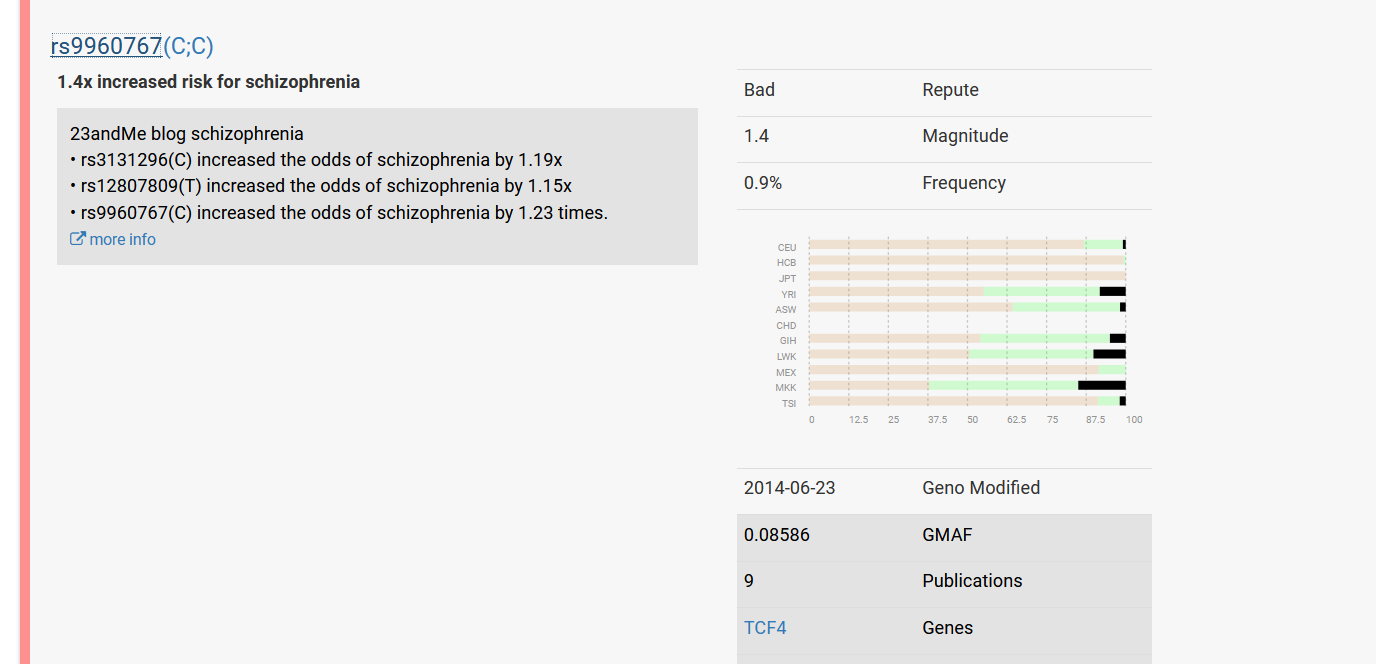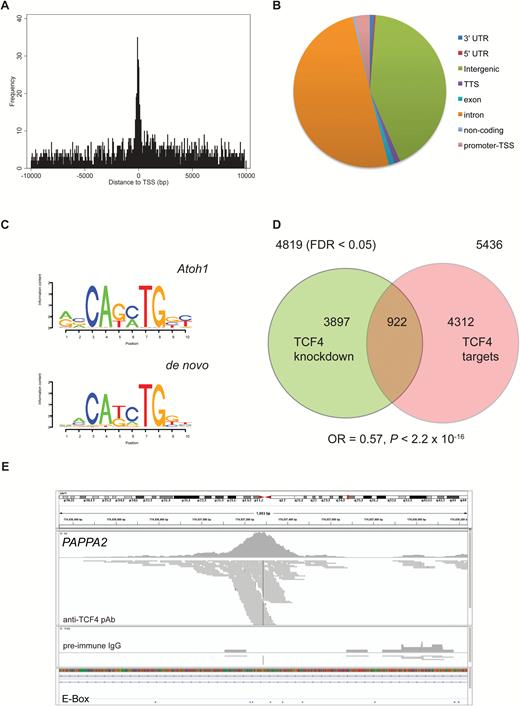Incellectually_Shy
Racepill victim
- Joined
- Oct 15, 2021
- Posts
- 3,457
- Reputation
- 1,831
The two conditions known as Autistic Spectrum Disorder(ASD) and Schizophrenic Spectrum Disorder(SSD) are closely associated, genetically-speaking.
ASD:
https://www.malacards.org/card/autism_spectrum_disorder?search=Autism
SSD:
https://www.malacards.org/card/schizophrenia?search=Schizophrenia
ASD and SSD are both known to cause cognitive impairments and sensory problems/psychosis...
I'll focus on Processing Speed for this thread:

edpsyched.com
With our introduction to the PSI, let's begin:

 pubmed.ncbi.nlm.nih.gov
pubmed.ncbi.nlm.nih.gov

 pubmed.ncbi.nlm.nih.gov
pubmed.ncbi.nlm.nih.gov
ASD and SSD affect cognition and processing speed, as indicated above.
Below is an example of my own genetic results:


 academic.oup.com
academic.oup.com
ASD:
NINDS : 52 Autistic disorder (sometimes called autism or classical ASD) is the most common condition in a group of developmental disorders known as the autism spectrum disorders (ASDs). Autistic children have difficulties with social interaction, display problems with verbal and nonverbal communication, and exhibit repetitive behaviors or narrow, obsessive interests. These behaviors can range in impact from mild to disabling. Autism varies widely in its severity and symptoms and may go unrecognized, especially in mildly affected children or when more debilitating handicaps mask it. Scientists aren’t certain what causes autism, but it’s likely that both genetics and environment play a role. Autism spectrum disorder is diagnosed based on symptoms, signs, and other testing according to the Diagnostic and Statistical Manual V, a guide created by the American Psychiatric Association to diagnose mental disorders. Children should be screened for developmental delays during periodic checkups and specifically for autism at 18- and 24-month well child visits.
https://www.malacards.org/card/autism_spectrum_disorder?search=Autism
SSD:
UniProtKB/Swiss-Prot : 71 A complex, multifactorial psychotic disorder or group of disorders characterized by disturbances in the form and content of thought (e.g. delusions, hallucinations), in mood (e.g. inappropriate affect), in sense of self and relationship to the external world (e.g. loss of ego boundaries, withdrawal), and in behavior (e.g bizarre or apparently purposeless behavior). Although it affects emotions, it is distinguished from mood disorders in which such disturbances are primary. Similarly, there may be mild impairment of cognitive function, and it is distinguished from the dementias in which disturbed cognitive function is considered primary. Some patients manifest schizophrenic as well as bipolar disorder symptoms and are often given the diagnosis of schizoaffective disorder.
https://www.malacards.org/card/schizophrenia?search=Schizophrenia
ASD and SSD are both known to cause cognitive impairments and sensory problems/psychosis...
I'll focus on Processing Speed for this thread:
What is Processing Speed?
When describing Processing Speed in my reports, I write:
Processing Speed measures the speed and accuracy of visual identification, decision making, and decision implementation.
There are three key components of this statement: 1) visual identification, 2) decision making, and 3) decision implementation. Simply put, processing speed involves the ability to identify the task at hand, recognize the decision that needs to be made, and make the decision.
Students who excel at processing speed are able to work quickly on cognitive and academic tasks. Usually they are among the first students to finish a test or to complete homework assignments. Determining a student’s processing speed gives us insight into how efficiently he or she is able to complete such tasks. As we’ll see below, however, students who work quickly may also experience other variables that contribute to their speed, some that aren’t necessarily positive.
How is it Calculated?
The Processing Speed index score is calculated using two subtests: Coding and Symbol Search. This is true for both the WISC-V (for children and adolescents) and the WAIS-IV (for adults).
The Coding subtest requires the student to view a series of numbers written in rows on a page. The student then draws a corresponding symbol under each number. The student is given two minutes to complete as many symbols as possible. The student is awarded one point for each correctly drawn symbol. The student is not penalized for incorrect symbols.
The Symbol Search subtest displays one or two symbols (depending on the age of the student) on the left hand side of the page. The student then must determine whether that symbol appears in a series of symbols displayed on the right side of the page. If the symbol appears, the student circles it. If not, the student checks the “No” box. The student has two minutes to complete as many items as possible. The student is then awarded one point for each correct answer but loses a point for each incorrect answer.
Once the two subtests are completed and scored, the score is then converted to a standard score that can be interpreted. The Processing Speed index score can be interpreted using the following scale:
- 130 or above: Very Superior
- 120-129: Superior
- 110-119: High Average
- 90-109: Average
- 80-89: Low Average
- 70-79: Borderline
- Below 70: Extremely Low

IQ Part 5: Processing Speed | EdPsyched
Welcome to the final installment of my deep dive into the IQ. We have already looked at the first four components: Verbal Comprehension, Visual Spatial, Fluid Reasoning and Working Memory. Today’s post will examine Processing Speed. As a reminder, I’ve been using the WISC-V for the basis of...edpsyched.com
With our introduction to the PSI, let's begin:
After controlling for full scale IQ, the present results show that processing speed index standard scores were on average 12 points lower in the group with ASD compared to the group with typical development. There were, however, no significant group differences in standard score age-related changes within this age range. For subtest raw scores, the group with ASD demonstrated robustly slower processing speeds in the adult versions of the IQ test (i.e., WAIS-III) but not in the child versions (WISC-III), even though age-related changes were similar in both the ASD and typically developing groups. This pattern of results may reflect difficulties that become increasingly evident in ASD on more complex measures of processing speed. Finally, DTI measures of whole-brain white matter microstructure suggested that fractional anisotropy (but not mean diffusivity, radial diffusivity, or axial diffusivity) made significant but small-sized contributions to processing speed standard scores across our entire sample. Taken together, the present findings suggest that robust decreases in processing speed may be present in ASD, more pronounced in adulthood, and partially attributable to white matter microstructural integrity.

Longitudinal processing speed impairments in males with autism and the effects of white matter microstructure - PubMed
The present study used an accelerated longitudinal design to examine group differences and age-related changes in processing speed in 81 individuals with autism spectrum disorder (ASD) compared to 56 age-matched individuals with typical development (ages 6-39 years). Processing speed was...Individuals with disorders that include psychotic symptoms (i.e. psychotic disorders) experience broad cognitive impairments in the chronic state, indicating a dimension of abnormality associated with the experience of psychosis. These impairments negatively impact functional outcome, contributing to the disabling nature of schizophrenia, bipolar disorder, and psychotic depression. The robust and reliable nature of cognitive deficits has led researchers to explore the timing and profile of impairments, as this may elucidate different neurodevelopmental patterns in individuals who experience psychosis. Here, we review the literature on cognitive deficits across the life span of individuals with psychotic disorder and psychotic-like experiences, highlighting the dimensional nature of both psychosis and cognitive ability. We identify premorbid generalized cognitive impairment in schizophrenia that worsens throughout development, and stabilizes by the first-episode of psychosis, suggesting a neurodevelopmental course.

Cognitive Deficits in Psychotic Disorders: A Lifespan Perspective - PubMed
Individuals with disorders that include psychotic symptoms (i.e. psychotic disorders) experience broad cognitive impairments in the chronic state, indicating a dimension of abnormality associated with the experience of psychosis. These impairments negatively impact functional outcome...ASD and SSD affect cognition and processing speed, as indicated above.
Below is an example of my own genetic results:
The Psychiatric Risk Gene Transcription Factor 4 (TCF4) Regulates Neurodevelopmental Pathways Associated With Schizophrenia, Autism, and Intellectual Disability
Genetic variants in and around the transcription factor 4 (TCF4) gene are associated with range of disorders that are frequently associated with cognitive dysfunction.1–3 The most recent schizophrenia GWAS reported three independent single nucleotide polymorphisms (SNPs) in TCF4 that surpassed the threshold for genome wide significance.4 Intriguingly, rare TCF4 single nucleotide variants (SNVs) have also been described in schizophrenia patients, although their impact on the function of the protein has not been established.5,6 In addition to the genetic studies in schizophrenia, TCF4 variants are associated with early information processing and cognitive markers, some of which are schizophrenia endophenotypes.7–10 Damaging TCF4 mutations have also been described in large-scale genotyping studies in patients with ID, neurodevelopmental disorders, and most recently ASD.11–15 Haploinsufficiency of TCF4 causes Pitt–Hopkins syndrome (PTHS); a rare form intellectual disability (ID) associated with characteristic facial features, autonomic dysfunction, and behavioral traits that resemble autism spectrum disorder (ASD).16–19 Collectively, these studies implicate TCF4 in a range of neurodevelopmental disorders.
CF4 is a member of the basic helix-loop-helix (bHLH) family of proteins.20–22 For the purposes of disambiguation, it should be noted that TCF4 (Gene ID: 6925) described herein should not be confused with T-cell factor 4 (Gene ID: 6934, official gene symbol, TCF7L2) since they can share the same acronym. TCF4 and its paralogues, collectively known as E-proteins, interact with other bHLH proteins to regulate DNA binding specificity and transcriptional activity at promoters and enhancers that contain E-boxes (5′-CANNTG).2,20,23 The human TCF4 gene encodes multiple protein isoforms of which only the major isoforms TCF4-A and TCF4-B have been characterized in detail.24 In neurons, TCF4 regulates the intrinsic excitability of pyramidal cells of the prefrontal cortex and has been shown to attenuate neurite branching.25,26 Furthermore, haploinsufficiency of Tcf4 in mice affects gene expression and DNA methylation in the brain, leading to enhanced long-term potentiation, learning and memory deficits, and autistic-like behavior.22,25,26 By contrast, mice over-expressing Tcf4 in the brain display deficits in sensorimotor gating, fear conditioning, and circadian processes as well as impairments in attentional and behavioral anticipation.7,27












